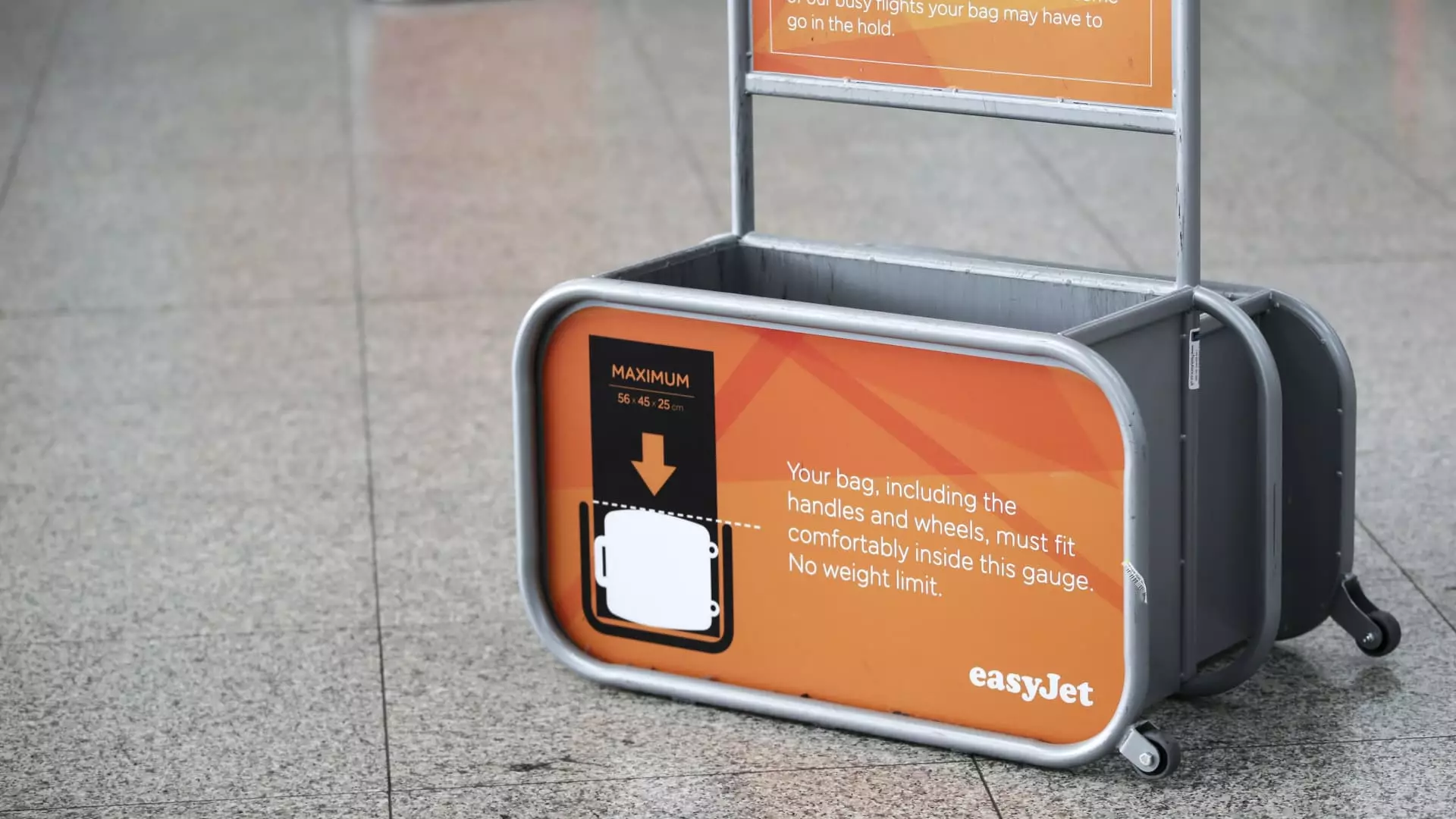EasyJet has recently reported a staggering £3.59 billion ($4.5 billion) in revenue from ancillary services for the financial year ending in October. This substantial figure highlights a remarkable 22% year-on-year increase in add-on income, which includes charges for extra baggage, seat selection, priority boarding, and in-flight meals. The airline’s chief executive, Johan Lundgren, described this growth as a significant achievement, particularly in a fiercely competitive low-cost aviation market where price sensitivity among consumers is paramount.
Notably, the ancillary revenue generated specifically from the airline division reached an all-time high of £2.46 billion, marking a 13% rise. This surge can be attributed to the broader trend in the aviation industry, where airlines have incrementally stripped down their base fares. The intent is clear; by focusing on ultra-low cost ticket prices, airlines aim to capture fare-sensitive customers while enhancing profitability through additional fees. Lundgren emphasized that one-third of easyJet’s customers opt not to purchase any add-on services, raising questions about the fairness of regulatory scrutiny over these pricing strategies.
Despite the impressive revenue figures, EasyJet has found itself at the center of a regulatory storm, particularly following a hefty £29 million fine levied by Spain’s Ministry of Consumer Rights. The fine is part of a broader crackdown targeting several low-cost carriers—including easyJet, Norwegian, Vueling, and Ryanair—for alleged unfair practices like charging extra for hand luggage and selectively reserving seats for accompanying dependent passengers.
Lundgren’s vehement disagreement with the fines reflects a critical stance against what he perceives as an infringement on consumer choice. He articulated a belief that European law supports airlines’ rights to provide a spectrum of services tailored for diverse customer needs. It raises an essential discourse concerning how regulatory frameworks adapt to evolving market practices. Lundgren’s assertion that the means of offering service options should remain intact as long as consumers can select based on their preferences confronts the granularity of consumer rights in an industry that increasingly balances low fares and revenue through ancillary fees.
The ramifications of these regulatory actions have been met with unified discontent among the industry players. EasyJet, alongside competitors like Ryanair and Norwegian, has united in opposition against what they deem “disproportionate and abusive” fines. They argue that these penalties fail to account for the evolving nature of travel consumerism, in which transparency about pricing and consumer choices must coexist with the financial realities of operating a low-cost travel model.
Meanwhile, Ryanair’s recent financial results highlight the variability in performance throughout the airline sector. The carrier reported an 18% decrease in half-year profits despite a rise in passenger numbers, primarily due to declines in fares and external pressures such as diminished online travel agency bookings and delivery delays from Boeing concerning its B737-Max aircraft. This discrepancy in air travel performance accentuates the diverging pathways post-pandemic, where some airlines recover robustly while others wrestle with a combination of market pressures and operational challenges.
Looking ahead, EasyJet’s solid full-year profit before tax of £610 million—equating to a 34% year-on-year increase—reflects burgeoning consumer demand for travel across Europe. As the market stabilizes post-COVID-19, Lundgren noted that the European consumer is increasingly prioritizing travel and holidays. This phenomenon is crucial for the sector’s resurgence, as pent-up travel demand continues to drive bookings.
The collaborative efforts by airlines to challenge regulatory obstacles and maintain competitive pricing models will likely redefine how ancillary services are perceived in the aviation landscape. The dialogue surrounding consumer choice, pricing transparency, and regulatory frameworks will continue to evolve, striving for an equilibrium that supports both airline profitability and consumer rights. As EasyJet navigates these challenges, its future actions and consumer response will significantly impact its trajectory in the low-cost air travel market.


Leave a Reply